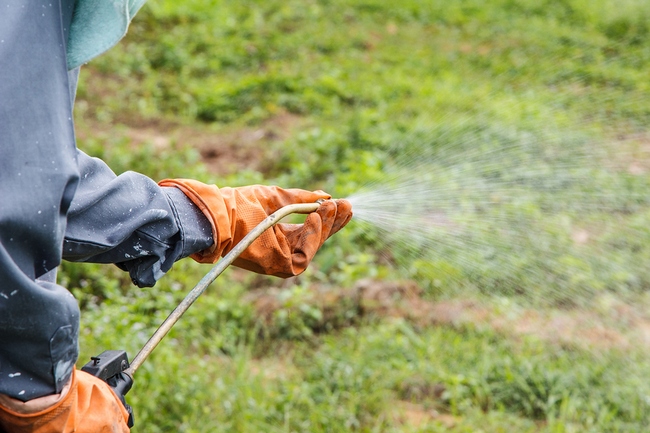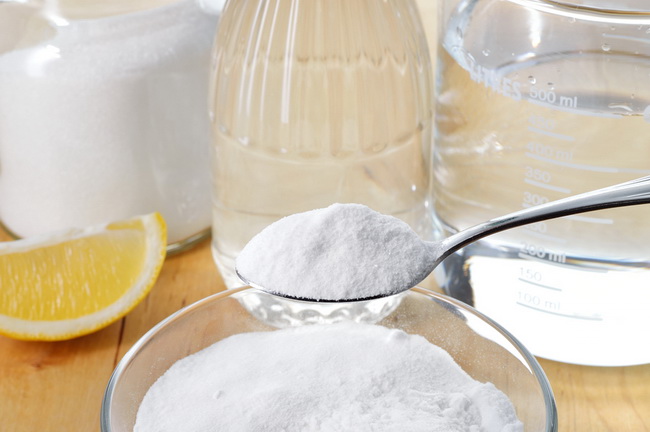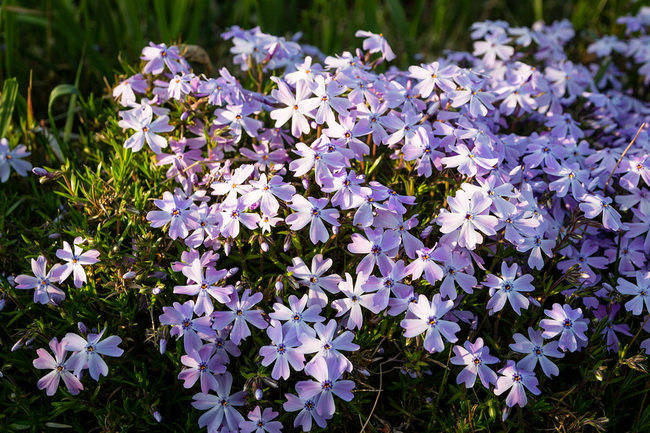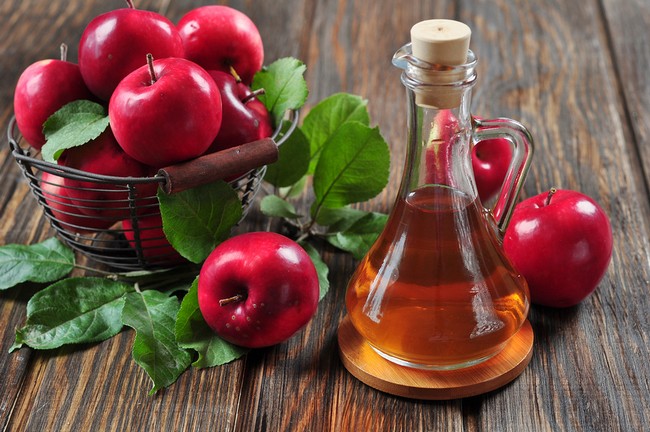- Make It Yourself Lavender Heart-Shaped Bath Bombs!
- 20 Things You Never Knew About “Down There”
- 12 Best Foods For Those Suffering From Arthritis Pain
- 12 Personal Hygiene Mistakes Almost Everyone Makes (Mom Never Told You About #4!)
- 15 Medicinal Plants And Herbs From The Cherokee People
- 12 Mind-Blowing Benefits Of Drinking Coconut Water During Pregnancy
- 12 Outstanding Winter Foods That Won’t Fatten You Up Like A Christmas Turkey
Weed Killers Cause Cancer: 12 Terrific Alternatives (#5 is Super Easy!)

Photo credit: bigstock.com
It’s been a wild and crazy spring, but summer is right around the corner! And with summer comes summer time gardening. And weeds. Although many weeds are actually beneficial herbs, sometimes there truly are weeds out there that you don’t want in your summer garden, sucking up all the water and nutrients your veggies should be getting.
The bad news is, most people just reach for some commercial weed killer, also known as herbicides, and spread it or spray it all over. Weed killers affect much more than just the weeds. They can cause cancer in humans and animals and kill small, beneficial insects such as bees and butterflies. Later, when it rains, these weed killers wash off, run downstream, and end up in our drinking water, lakes, streams, and oceans.
Used in large enough quantities, many people find that they begin having negative health problems within hours after applying or being in contact with these pesticides. Poisoning symptoms include rashes, severe headaches, nausea, vomiting, dizziness, and much more.
There really is no need to use these cancer causing weed killers. There are dozens of methods of getting rid of weeds, all of which are natural and harmless to bees, humans, and wildlife. We have compiled a list of 12 different ways you can kill weeds and have a killer garden this summer.
Keep reading for the best ways you can get rid of weeds naturally, easily, and toxic free!
1. Vinegar
For this method, you can use either white or apple cider vinegar, whichever you happen to have on hand. Both will work equally well. The high level of acidity in vinegar will go a long way towards killing weeds. Start by diluting the vinegar with equal parts of water. Later you can increase or decrease the amount of vinegar depending on the results you get. Large, established weeds might need to be sprayed more than once to kill it completely. Some people like to add a few drops of dishwashing soap to the mix to help it stick better to the leaves. Spray the plant in the morning so the sun can accelerate the process.
2. Go Solar
If you have the opportunity, you can prepare your garden bed in advance using solar power. If you live in an area with warm springs, you can do it then, or wait until the early summer and your garden will be ready by fall. This method is great for those who have a great deal of weeds or a great deal of space and you don’t want to break your back pulling out weeds or hoeing for hours. This method will not only kill current weeds, but most seeds and even some garden pests. Simply buy some thin, black plastic (this is sold at any garden store) and cover the ground with it. Secure the loose ends by piling soil or rocks all along the edges so that the plastic fits as tightly as possible over the area. That’s it. Let the sun do its work. This method denies the weeds and seeds sunlight but heats up the ground so much that almost everything underneath is killed. Remove the plastic after 4 to 6 weeks, remove the dead weeds, add your compost, and you are ready to go.
Continue to Page 2

Photo credit: bigstock.com
3. Salt
Salt is a great way to kill plants but you need to be careful as it will kill everything, including your veggies, if you use too much. Too much salt will also prevent future plants from growing for a period of about 6 to 12 months, so this is best used in places where you never want plants, such as driveways, sidewalks, and patios. Fill a spray bottle with very warm water and add about a ½ a cup of salt. Spray liberally.
4. Rubbing Alcohol
This sucks the moisture from plants, killing them fairly quickly. Fill a spray bottle with water and use several tablespoons of rubbing alcohol and spray the weeds well. Be careful not to overspray onto any plants that you want to keep!
5. Boiling Water
This is the cheapest and simplest method of all! It also happens to be one of the most effective. Again, be careful not to let this touch any plants you intend to keep. This works best in places where you don’t want anything to grow such as driveways and patios, but used carefully, it can be used in gardens. Simply boil water and pour it over the weeds. This should kill them completely within 24 hours unless they are really large weeds. In that case, a second application should do the job.
Continue to Page 3

Photo credit: bigstock.com
6. Crowd Them Out
For lawns or other ornamental gardens, you can make it so that you never (or rarely) have to ever pull or worry about weeds. When you place ground cover plants or certain types of grass, you will deprive weeds of sunlight; water, space, and even soil nutrients that they need to grow and thrive. The best weed suppressing plants, according to the scientists at Cornell University, are:
- Emerald blue moss phlox
- Majestic lilyturf
- Thriller lady’s mantle
- Herman’s pride
- Walker’s low catmint
- Creeping thyme
- Golden fleece dwarf goldenrod
7. Baking Soda
This method is a bit slower than some others, but it still works well. Simply dump a good amount of baking soda over the weeds you want to kill and sprinkle with a bit of water. You might need to do this two or three times to kill the weed all the way down to the root. This method works best when weeds are actively growing, such as spring or fall, but it will also work in the summer months. Find out more baking soda uses.
8. Corn Gluten Meal
If you have a really large area to cover, then this natural herbicide might be just what you are looking for. Developed by horticulturists at Iowa State University, this works best as a pre-emergent, which means it works best at killing small roots and seeds before they sprout into full sized plants. It won’t kill off larger weeds, and you need to do it in the early spring, just when weeds are beginning to sprout, however, for those of you with large plots of land, this can work really well. Contact a gardening center for more information.
9. Fry Them
This is probably the favorite method of most guys. If you don’t have one, you can buy a propane powered weed scorcher at almost any garden store. If you have a handheld blow torch, that will also work, but for most people, the garden store weed scorcher works like a charm. Simply touch the flame to the weed. Even if they don’t go up in flames, this will cause them to lose all of their internal moisture. They will shrivel up and die completely within a day or two.
Continue to Page 4

Photo credit: bigstock.com
10. Newspaper
For low growing weeds, simply covering them with several layers of biodegradable newspaper, then placing some mulch over the newspaper, will prevent the weeds from getting the sunlight they need to grow. New weeds will also be prevented from sprouting due to lack of sunlight.
11. Make Your Own Herbicide
For those small, occasional weeds that bug you, fill a spray bottle with 2 cups of vinegar (either white or apple cider), a teaspoon or so of liquid dish soap (or castile soap), and about a half a cup of regular table salt. Be sure to mix this well so that the salt completely dissolves, otherwise it will clog up your spray nozzle. Now, anytime you see a weed, you can simply spray it with your readymade herbicide. The earlier you spray it, the better this will work.
SEE ALSO: Grow Your Own Herbal Salve Garden with These 10 Plants
12. When All Else Fails
Most weeds are actually edible herbs or medicinal herbs. If you don’t have too many of them, you can simply pull them by hand, and eat them fresh (such as in the case of dandelions), boil them to make tea, or dry them for later use. If you aren’t sure what the weeds in your yard are or if you are not sure whether or not you can eat them, this might be a good time to learn! Never consume any plant that you do not know for certain are safe to eat. Some harmless looking plants are deadly when consumed. Better to be safe than sorry.
If your weed problem is small and there are only a few of them, sometimes the best method is to simply pull them by hand or hoe them out and add them to the compost pile. If the weed has gone to seed, don’t add it to your compost pile as the seeds will only sprout later on. Throw those weeds in the trash or burn them.
References:
































